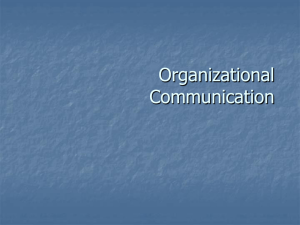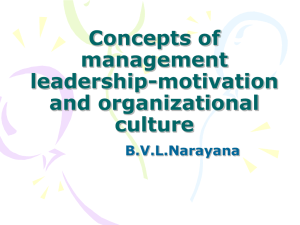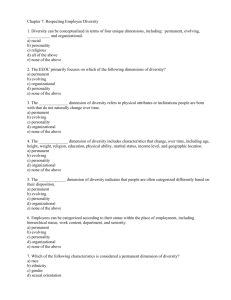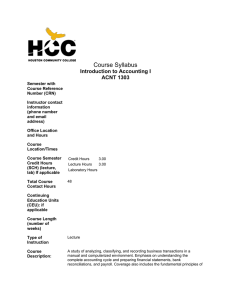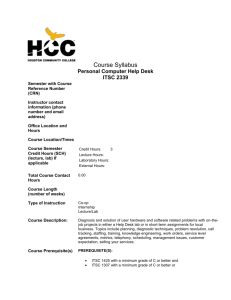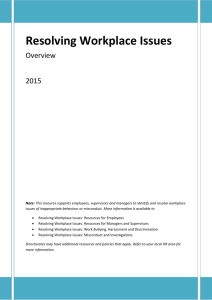Organizational Behavior syllabus
advertisement
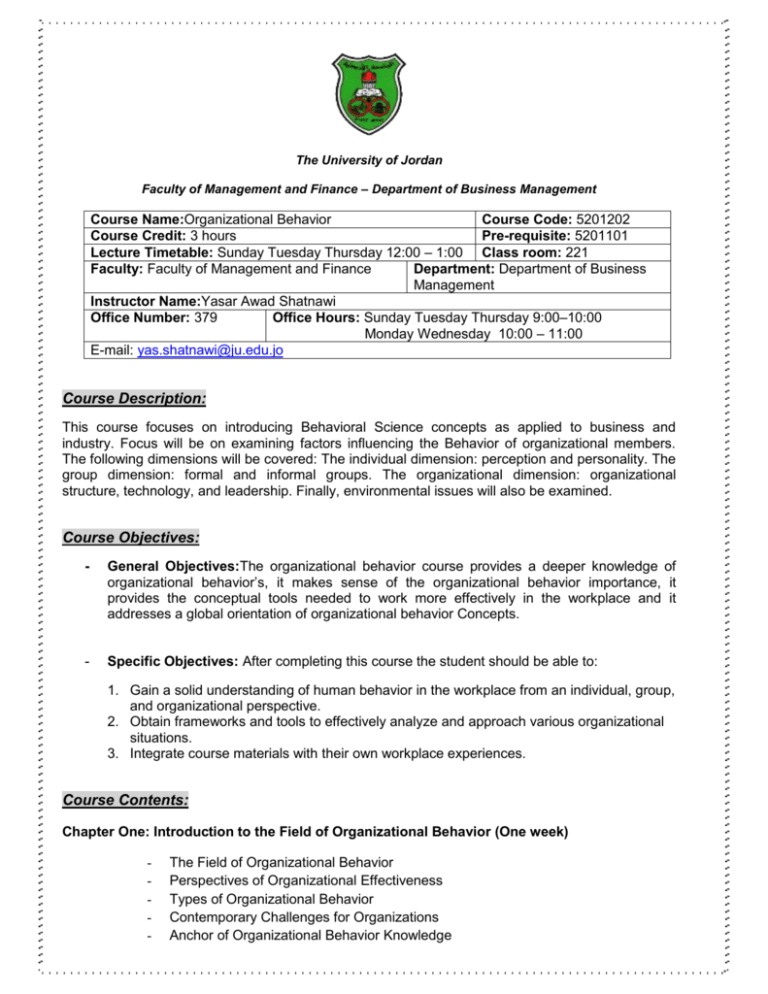
The University of Jordan Faculty of Management and Finance – Department of Business Management Course Name:Organizational Behavior Course Code: 5201202 Course Credit: 3 hours Pre-requisite: 5201101 Lecture Timetable: Sunday Tuesday Thursday 12:00 – 1:00 Class room: 221 Faculty: Faculty of Management and Finance Department: Department of Business Management Instructor Name:Yasar Awad Shatnawi Office Number: 379 Office Hours: Sunday Tuesday Thursday 9:00–10:00 Monday Wednesday 10:00 – 11:00 E-mail: yas.shatnawi@ju.edu.jo Course Description: This course focuses on introducing Behavioral Science concepts as applied to business and industry. Focus will be on examining factors influencing the Behavior of organizational members. The following dimensions will be covered: The individual dimension: perception and personality. The group dimension: formal and informal groups. The organizational dimension: organizational structure, technology, and leadership. Finally, environmental issues will also be examined. Course Objectives: - General Objectives:The organizational behavior course provides a deeper knowledge of organizational behavior’s, it makes sense of the organizational behavior importance, it provides the conceptual tools needed to work more effectively in the workplace and it addresses a global orientation of organizational behavior Concepts. - Specific Objectives: After completing this course the student should be able to: 1. Gain a solid understanding of human behavior in the workplace from an individual, group, and organizational perspective. 2. Obtain frameworks and tools to effectively analyze and approach various organizational situations. 3. Integrate course materials with their own workplace experiences. Course Contents: Chapter One: Introduction to the Field of Organizational Behavior (One week) - The Field of Organizational Behavior Perspectives of Organizational Effectiveness Types of Organizational Behavior Contemporary Challenges for Organizations Anchor of Organizational Behavior Knowledge Chapter Two: Organizational Behavior, Personality and Values (Two weeks) - MARS Model for Individual Behavior and Performance Personality in Organizations Self-Concept the “I” in Organizational Behavior Values in Workplace Values Across Cultures Ethics Values and Behavior Chapter Three: Perception and Learning in Organizations(Two weeks) - The Perceptual Process Social Identity and Stereotyping Attribution Theory Self-Fulfilling Prophecy Other Perceptual Errors Improving Perceptions Learning in Organizations From Individual to Organizational Learning Chapter Four: Workplace Emotions, Attitudes and Stress (One week) - Emotions at Workplace Managing Emotions at Workplace Emotional Intelligence Job Satisfaction Organizational Commitment Work-Related Stress and its Management Chapter Five: Foundations of Employee Motivation (One week) - Employees Engagement Employees Drivers and Needs Expectancy Theory of Motivation Goal Setting and Feedback Organizational Justice Chapter Six: Applied Performance Practices (Two weeks) - The Meaning of Money in the Workplace Financial Reward Practices Job Design Practices Empowerment Practices Self-Leadership Practices Chapter Eight: Team Dynamics (One week) - Team and Informal Groups Advantages and Disadvantages of Teams A Model of Team Effectiveness Team Design Elements Team Process Chapter Nine: Communicating in Teams and Organizations (Two weeks) - - The Importance of Communication A Model of Communication Communication Channels Chapter Twelve: Leadership in Organizational Settings (One week) - What is Leadership? Competency Perspective of Leadership Perspective Behavior of Leadership Contingency Perspective of Leadership Transformation Perspective of Leadership Chapter Thirteen: Organizational Structure (One week) - Division of Labour and Coordination Elements of Organizational Structure Forms of Departmentalization Contingencies of Organizational Design Chapter Fourteen: Organizational Culture (One week) - Elements of Organizational Culture Merging Organizational Cultures Changing and Strengthen Organizational Culture Organizational Socialization Assessment Methods: 12345- Evaluation Tool Mid-term Examination Participation Homework Short Exam Final Examination Grading % 30% 5% 10% 5% 50% Date During the semester During the semester During the semester During the semester Determined by the University Main Textbook: - McShane, S., L. and Von Glinow, M., A. 2010. Organizational Behavior. 5th edition. New York: McGraw-Hill Additional readings: - Robbins, S., P. and Judge, T., A. 2013. Organizational Behavior. 15th edition. New York: McGraw-Hill. Course Policies: Attendance - Students are expected to attend class. Students may not receive credit for a course if they do not attend 85 % of the class meetings Academic Honesty: - All the assignments and work submitted by the student should be his or her own. All actions of academic dishonesty including cheating, plagiarism or helping other students in such actions will be deal with strictly according to the university regulations. Assessments Methods: - - All students are expected to attend all exams. Student cannot retake the exam without an excuse within three days of the exam date and the instructor has the right to accept or refuse it according to the university rules. All students must submit home works on time otherwise the instructor will not accept it.


